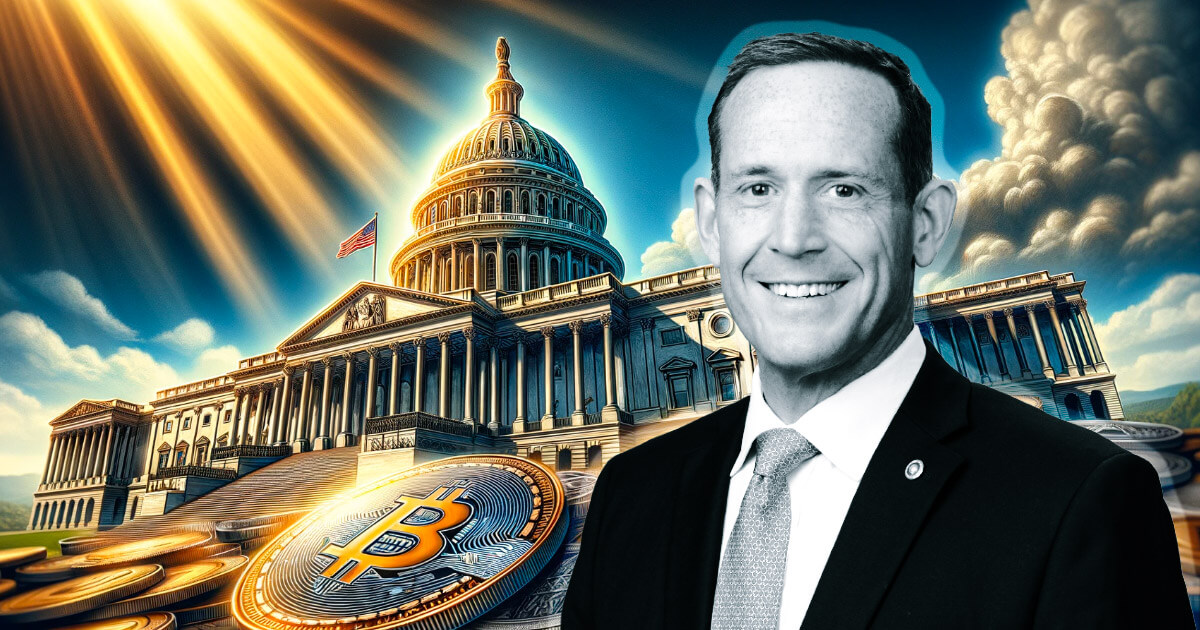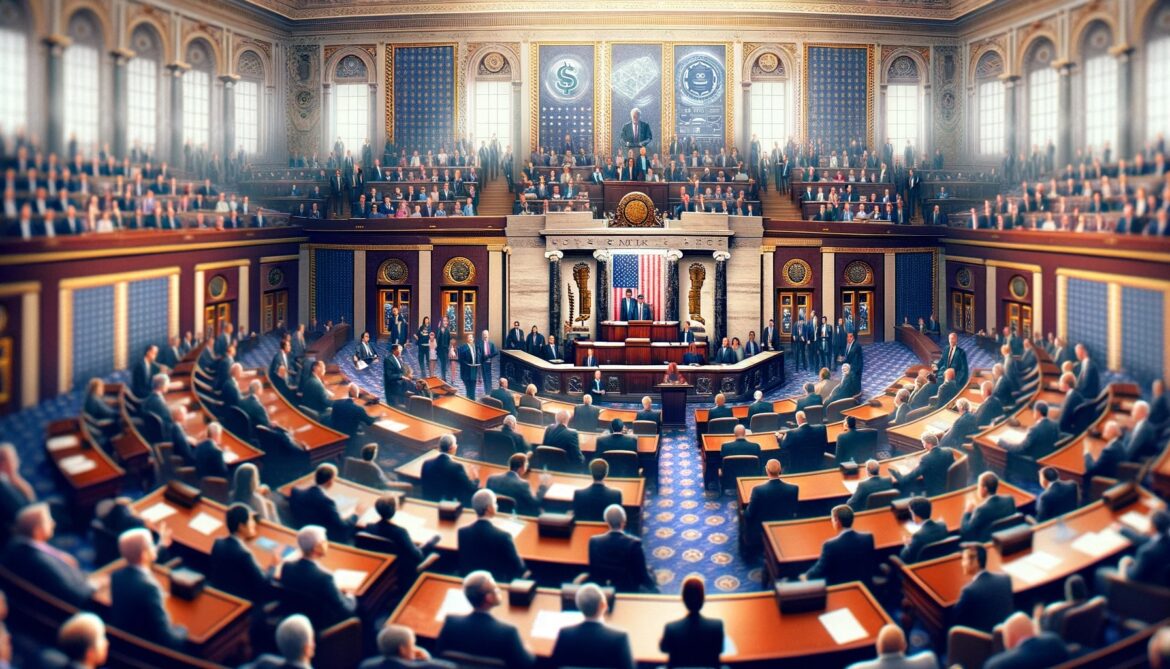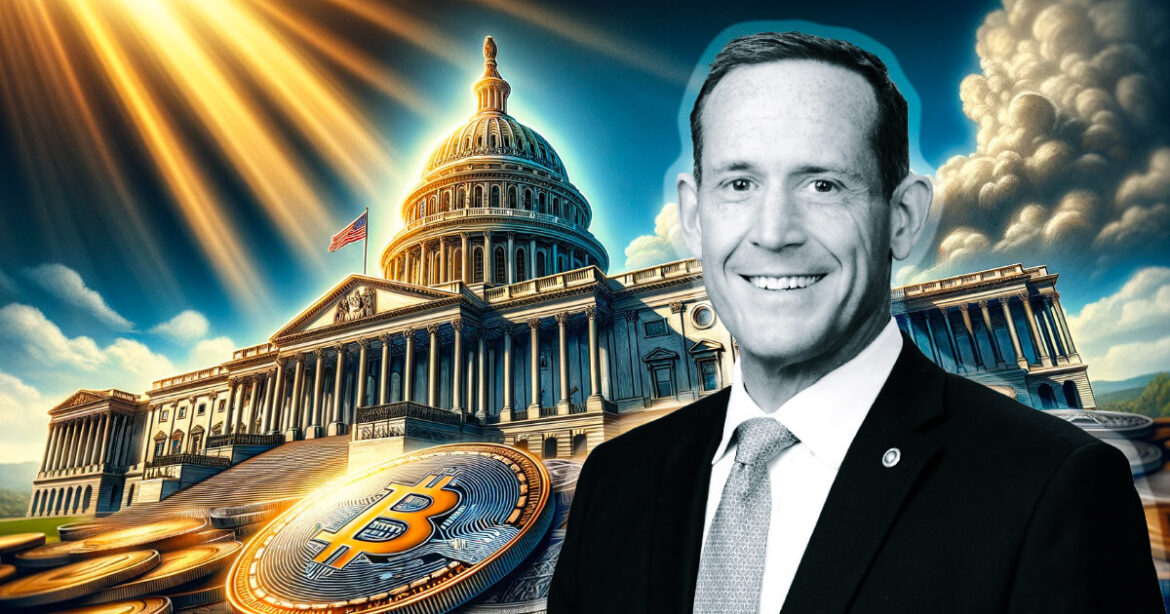 The Paraguayan Senate has approved a resolution supporting selling the country’s energy surplus to crypto mining companies, given the price and guarantees that these institutions offer. The declaration criticizes the subpar agreements that sell energy to Brazil for 25% of the fees collected for mining activities, calling to direct this energy to 20 new contracts […]
The Paraguayan Senate has approved a resolution supporting selling the country’s energy surplus to crypto mining companies, given the price and guarantees that these institutions offer. The declaration criticizes the subpar agreements that sell energy to Brazil for 25% of the fees collected for mining activities, calling to direct this energy to 20 new contracts […]
Source link
Senate
Senate bill adds to growing list of digital asset legislation moving through Congress

U.S. Senators Mitt Romney (R-UT), Mark R. Warner (D-VA), Mike Rounds (R-SD), and Jack Reed (D-RI) have proposed legislation aimed at sanctioning foreign entities that facilitate financial transactions, including digital asset transactions, with Foreign Terrorist Organizations (FTOs) designated by the U.S.
The bill, titled the Terrorism Financing Prevention Act, is a response to the increasing role of digital assets in financing terrorism, exemplified by Hamas’s recent attacks on Israel. It seeks to expand the Treasury Department’s resources and authority to counteract emerging threats from digital assets and hold foreign financial institutions, including crypto firms, accountable for their relations with FTOs.
The proposed legislation outlines several key measures to prevent FTOs from accessing U.S. financial institutions and digital asset systems. These include the obligation for the Treasury to identify foreign financial institutions and digital asset facilitators that have knowingly conducted significant transactions with FTOs or related parties. Following identification, sanctions would be imposed, either restricting the use of U.S. correspondent bank accounts or barring digital asset transactions with U.S. persons.
The legislation includes two exceptions allowing flexibility on national security issues and trade. A waiver provision enables the Treasury Secretary to suspend sanctions under the Act deemed in U.S. national interest but requires Congressional notification. Additionally, sanction authority excludes the importation of physical goods, avoiding unintentional economic impact. The exceptions permit case-specific sanction waivers benefiting national security and continuous physical goods trade.
Long time coming
Congress is actively considering several bills aimed at regulating the burgeoning cryptocurrency and digital asset market. These legislative efforts reflect a growing concern among lawmakers about the need for a comprehensive framework to govern digital currencies and related activities.
One of the key proposals is the Financial Innovation and Technology (FIT) for the 21st Century Act of 2023, sponsored by Representatives Glenn Thompson (R-PA) and Dusty Johnson (R-SD). This bill seeks to redefine the regulatory boundaries for digital assets by categorizing them based on blockchain technology, distinguishing between centralized and decentralized blockchains.
The bipartisan Responsible Financial Innovation Act of 2023, known as the Lummis-Gillibrand bill, is another major initiative. Introduced by Senators Cynthia Lummis (R-WY) and Kirsten Gillibrand (D-NY), it proposes to maintain the application of the Howey test to digital assets, delineating the oversight roles of the SEC and CFTC in the digital asset market.
The Digital Asset AML Act, reintroduced by Senators Elizabeth Warren (D-MA), Roger Marshall (R-KS), Joe Manchin (D-WV), and Lindsey Graham (R-SC), focuses on extending Anti-Money Laundering (AML) provisions of the Bank Secrecy Act to cryptocurrencies. This bill aims to increase transparency and prevent illicit transactions in the digital currency space.
The Financial Technology Protection Act of 2023, introduced by Senators Ted Budd and Kirsten Gillibrand, is led in the House by Representatives Zach Nunn (R-IA) and Jim Himes (D-CT). This bipartisan bill, previously passed in 2018 and 2019, establishes a group to combat terrorism and illicit financing using financial technologies, including digital assets. It focuses on enhancing anti-money laundering measures and requires annual Congressional reports on its findings and strategies to counteract the misuse of digital assets by foreign entities.
Lastly, the Clarity for Payment Stablecoins Act of 2023, introduced by Representative Patrick McHenry (R-NC), is tailored to regulate the issuance of stablecoins. The bill outlines specific requirements for banks issuing stablecoins, focusing on safeguarding deposits, reserves, and liquidity.
These legislative efforts, coupled with the latest bill submitted on December 7, indicate a concerted effort in Congress to establish clear guidelines and oversight mechanisms for the rapidly evolving digital asset industry. However, given the number of steps that remain for each, any new legislation from Congress is a long way from becoming law.
‘Keep Your Coins Act’ comes to US Senate amid push for crypto self-custody

The push for greater financial freedom and decentralization in the crypto ecosystem continues with the introduction of the “Keep Your Coins Act” to the U.S. 118 Congress by Senator Ted Budd (R-NC) on Nov. 7.
The new bill aims to empower individuals to maintain full custody of their digital assets like Bitcoin (BTC) without reliance on third-party intermediaries like exchanges.
This self-custody legislation comes from the disastrous FTX collapse, highlighting the risks of leaving funds on centralized platforms.
Part of the bill reads:
“To prohibit Federal agencies from restricting the use of convertible virtual currency by a person to purchase goods or services for the person’s own use, and for other purposes.”
Senator Budd stressed the growing need for investors to control their digital assets amidst rampant industry turmoil.
“As consumers face new challenges and risks associated with the use of digital currencies, we should be empowering individuals to maintain control over their own digital assets,” Senator Budd said. “This approach will foster financial freedom and a more decentralized cryptocurrency ecosystem.”
If passed, the act would prohibit federal agencies from enacting rules against self-hosted wallets.
Meanwhile, the Senate bill mirrors previous efforts in the House, where Rep. Warren Davidson introduced similar legislation in 2022.
Davidson’s “Keep Your Coins Act” passed the House committee last July, though it has yet to see a full floor vote. The congressman has been a vocal advocate for protecting self-custody wallets from government overreach and has also been a prominent supporter of the emerging industry against regulators like the U.S. Securities and Exchange Commission (SEC).
The House and Senate bills underscore a broader push towards a more decentralized crypto ecosystem, where users retain personal control over assets. This aims to mitigate third-party risks while preserving financial freedoms.
While the fate of self-custody legislation remains uncertain, the latest Senate introduction keeps the conversation alive as lawmakers grapple with crypto oversight approaches.
Ripple legal chief flags misleading statements in SEC chair Senate committee remarks
What is CryptoSlate Alpha?
A web3 membership designed to empower you with cutting-edge insights and knowledge. Learn more ›
Connected to Alpha
Welcome! 👋 You are connected to CryptoSlate Alpha. To manage your wallet connection, click the button below.
Oops…you must lock a minimum of 20,000 ACS
If you don’t have enough, buy ACS on the following exchanges:
Connect via Access Protocol
Access Protocol is a web3 monetization paywall. When users stake ACS, they can access paywalled content. Learn more ›
Disclaimer: By choosing to lock your ACS tokens with CryptoSlate, you accept and recognize that you will be bound by the terms and conditions of your third-party digital wallet provider, as well as any applicable terms and conditions of the Access Foundation. CryptoSlate shall have no responsibility or liability with regard to the provision, access, use, locking, security, integrity, value, or legal status of your ACS Tokens or your digital wallet, including any losses associated with your ACS tokens. It is solely your responsibility to assume the risks associated with locking your ACS tokens with CryptoSlate. For more information, visit our terms page.
US Senate approves national defense bill that also targets crypto mixers

The United States Senate passed the 2024 National Defense Authorization Act (NDAA) worth $886 billion on July 27. The bill includes a provision targeting crypto mixers, anonymity-enhancing coins and institutions engaging in crypto trading.
The NDAA is a bill that helps authorize how the country’s defense department can utilize federal funding. Within the bill, a crypto-related amendment was advanced by a group of senators, including Cynthia Lummis, Elizabeth Warren, Kirsten Gillibrand and Roger Marshall.
The amendment was created with provisions taken from the Digital Asset Anti-Money Laundering Act, which was introduced back in 2022, and the Responsible Financial Innovation Act, which aims to establish guardrails to prevent another FTX-style event from happening within the industry.
seems pretty obvious that democrats have abandoned any stablecoin bill in favor of sneaking through this provision in the NDAA must pass bill.
anyone wanna guess what janet yellen will decide about whether KYC-less transfers of USDC are allowed? pic.twitter.com/sys38GI31z
— Spreek (@spreekaway) July 27, 2023
More specifically, the amendment will require establishing examination standards for crypto. This would help assess risk and ensure that businesses comply with related sanctions and money laundering laws.
Apart from this, it compels the U.S. Treasury Department to perform a study aimed at cracking down on anonymous crypto transactions. This includes the use of crypto mixers like Tornado Cash, which are used to make transactions private.
Related: Crypto lobbyists still fighting to axe ‘unlawful’ Tornado Cash sanctions
In 2022, the Treasury issued sanctions against the crypto mixer Tornado Cash, barring residents from using the crypto mixer. While the mixer was designed for people to anonymize their crypto transactions, it was often utilized by malicious actors to hide their ill-gotten crypto from hacks and exploits. According to the Treasury, the mixer failed to impose controls that disallow money laundering from bad actors in the space.
Meanwhile, the NDAA also includes an amendment that will require companies in the U.S. to disclose investments in China. U.S. Senator Bob Casey said that this notification is necessary for the government to understand how much “critical technology” is being transferred to “adversaries.“
Magazine: Tornado Cash 2.0: The race to build safe and legal coin mixers





